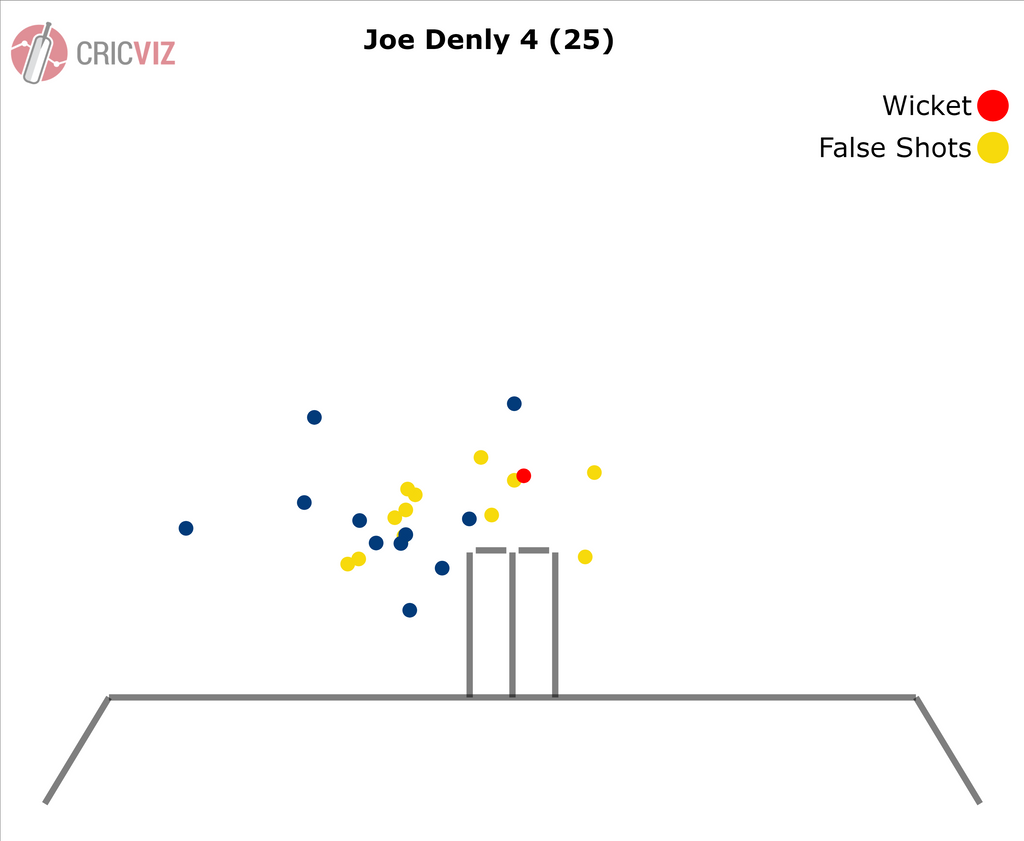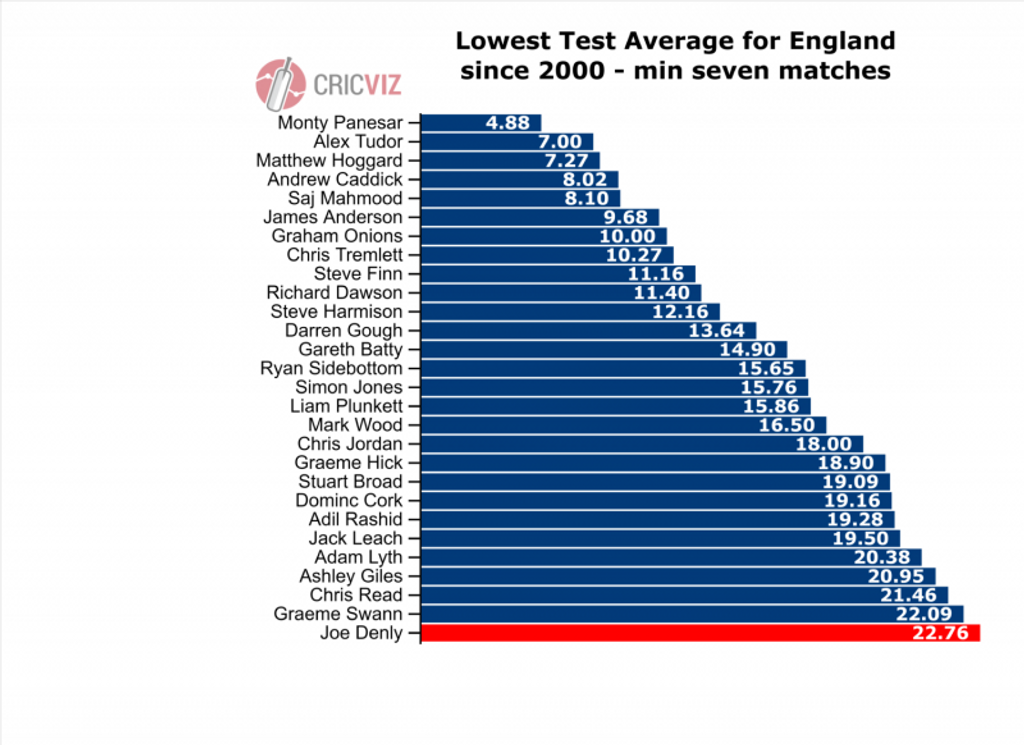
CricViz analyst Ben Jones wonders if Joe Denly’s time in England’s Test team might be up.
Today was never going to be easy for Joe Denly. In the field for two (intermittent) days, watching Steve Smith pile on run after idiosyncratic run, and was asked to go out and face a Tricky Little Session just before the close. Australia’s attack was fresh, and confident from a day of success and some late evening slogging. It was never going to be easy.
What’s more, Mitchell Starc and Josh Hazlewood are a fearsome opening pair, and the fact they weren’t deemed automatic selections for Australia’s Test XI this summer shows the depth of the tourists fast bowling stocks right now. This evening, Starc was slightly wayward, but rapid, with an average speed above 140kph, whilst Hazlewood was typically controlled and accurate, in the channel outside off with 52% of his deliveries. Backing them up was Pat Cummins at first change, arguably Australia’s most impressive all-round bowler.

Denly looked, as many batsmen do, vulnerable at the start of his innings. He was flashing outside off at balls which weren’t there to drive, forcing himself to play in a bubble under his eyes, but still not making clean contact. Errors like this happen early on, while you’re getting set. The issue was the extent of this vulnerability, with Denly displaying a level of insecurity at the crease which has been essentially unmatched throughout this series. This evening, he played a false shot to 50 percent of his first 20 balls. Only one knock this series from an Englishman has seen a higher percentage at the start of an innings; Denly, in the first innings at Headingley. Twice, against quality bowling, he has looked unable to cope.
The challenge was stiff, and Denly wasn’t up to the challenge, deflecting a Cummins short ball to short leg, where Matthew Wade took an excellent catch. There was joy and celebration over the brilliance of the sometime gloveman, but there was a sense that Denly was going to last much longer had the chance been spilled. It was an innings plagued with inevitability, and not in the way that Smith’s was.
Unfortunately for England, this sort of risk isn’t new. Denly’s record in terms of control has been an ongoing issue across this series; only Jason Roy has played a higher proportion of false shots for England than Denly this summer, and the Surrey man has been opening the batting throughout, facing the new ball. Denly has not exactly been coming in after 60 overs with the ball old and soft, but he’s still been afforded the luxury of a slight buffer from those opening assaults. To be batting in the middle order, and to be missing or edging the ball almost twice an over, is simply not sustainable at this level.

What’s more, Denly is not an opening batsman. His white-ball focus may not be quite so pronounced as Roy’s, but it’s similar in the way it affects perception of the player’s overall career. He hasn’t opened in red-ball cricket for the last four years, his notable and considerable success coming both down the order, and in the shorter forms of the game. Across his career, he averages 33.44 when opening the batting. There is little evidence that he has the ability to step up.
His batting average in Test cricket, 22.76, is very low. Of the 70 men to play for England as often as Denly has since 2000, only two specialist batsmen average less – Graeme Hick and Adam Lyth. To compound this, we can see that his poor performances can’t be explained away by excellent bowling, given that the Expected Average of the balls that Denly has faced is 25.9. Good bowling, but he’s under-performing compared to what we’d expect.

His most crucial innings in Test cricket – the rearguard with Joe Root at Leeds, which laid the platform for one of the great chases – came at four. In a way, it’s a compliment from the selectors that they saw such potential in that knock that they backed Denly to succeed further up the order. In some respects the trust shown in a player that they clearly like is admirable.
Yet in other respects, it is the latest decision that betrays the slightly muddled thinking which has been a consistent theme in England’s recent selections. Perhaps there is a reluctance – an understandable one – to trust domestic form as being indicative of international potential, and England are keen to focus on character and temperament, and are thus keen to keep Denly in the set-up.
[breakout id=”0″][/breakout]
Given the weather forecast, the Ashes may well still be alive as the series returns to London next week. If it does, England could well be required to swallow a significant amount of pride and bid farewell to a man who is clearly well-liked and respected within the set-up, but who increasingly looks like a player no longer deserving of his place in it.








